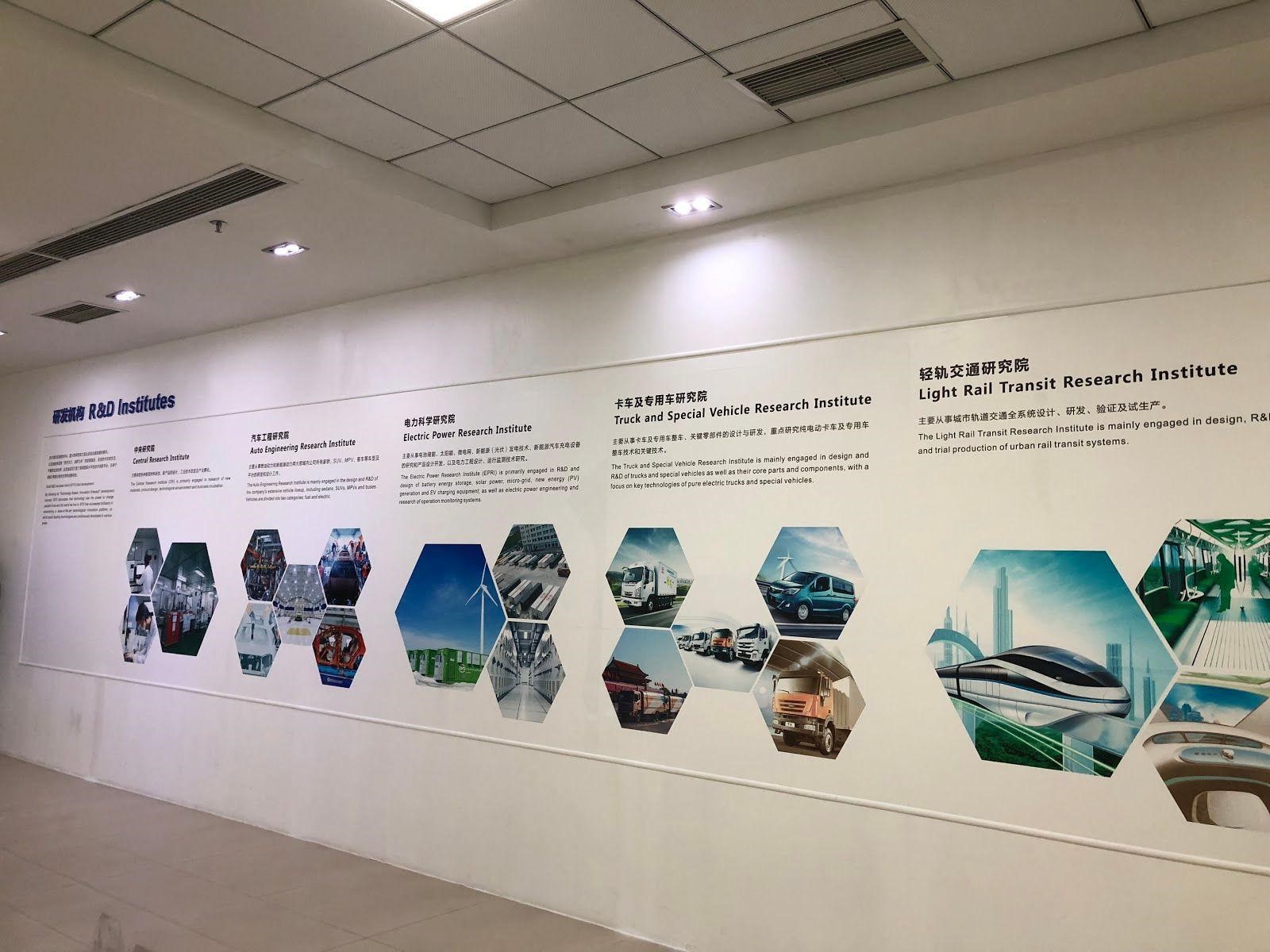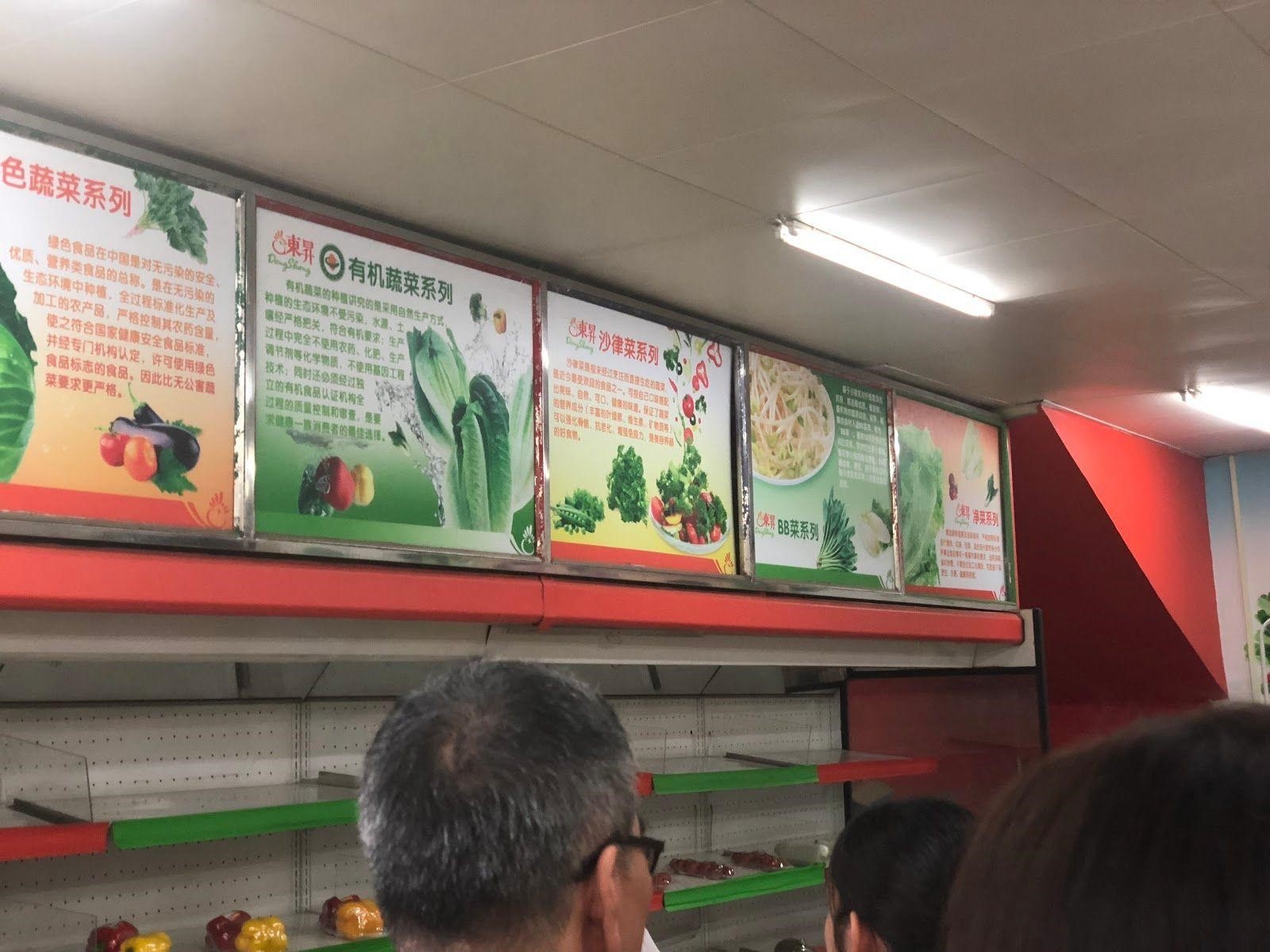



Summary
In this trip, we went to three different cities to visit different companies with various types of business models to learn about the role of business in contributing to sustainable development. The trip showed me how a business can manage its footprint on the environment and has inspired me a lot. It gave me a better understanding of how EVMT is going to help build a sustainable society in the future, not only by helping businesses maximize profit but improving the environmental quality at the same time. It is worthy to take part in the trip before the start of the new school year.
Description
The places we visited can be divided to three areas: energy, food production, and finance.

We learned about the development of clean energy specifically nuclear power in China and the effort GN made to show and educate the public about the significance and safety of generating nuclear power.

The instructor at CGN briefly explained the principle of nuclear power generation.

The instructor also showed how the company properly deals with radioactive waste.

We learned that BYD aims to apply new technology to solve social problems. The light rail is one of the examples, which uses technological innovation to solve urban traffic congestion.

BYD also developed a full range of energy solutions to reduce pollution as well as to meet long-term energy needs.

The instructor of Zhujiang Beer Factory told us how they control the water quality to avoid water pollution and how to make profit by dealing with waste in an environmentally friendly way.

Then the instructor showed us the machine for sewage treatment.

And we were allowed to taste their beer after the factory tour.

At the farm, the instructor clarified some concepts in farming, like organic vegetables and pollution-free vegetables.

We had a walk in the farm and the poultry town.


By listening to the presentation of the experts in green finance, we gained a basic understanding of what carbon-trading is and how it works.
Reflection
Economic incentive is the most powerful tool to motivate companies to be greener. In China’s situation, there are different kinds of policies and laws to control pollution. But it is quite common that many companies will just reach the minimum of legislation because they think that costs will increase when reducing pollution; furthermore they cannot see apparent improvements in the environment.. However, when they find out that it is beneficial to protect the environment, they are willing to invest money to develop the technology so that they can make a bigger profit, and at the same time, help conserve the environment. It is more effective that way. Take the example of Zhujiang Beer Factory where the sewage treatment machine can produce methane, which then can be used to generate electricity. The profit made by trading the electricity is over two million RMB. So the management keeps investing money to develop more advanced technology. Another example is the China Emissions Exchange, its success shows the strong motivation of money.
Since economic incentives are effective in driving the companies to contribute to the environment, as a future leader, we have to acquire more knowledge within different professions in order to achieve a balance of business and environment.
Also, after the trip, I became aware of the fading boundaries among different fields of study. So it is important for us to acquire scientific and technological concepts not only to improve the environment, but at the same time to achieve business goals.
Manager Zhu of the Zhujiang Beer factory does set a good example. She keeps finding room to improve the effectiveness of dealing with sewage, and at the same time, she needs to consider how to maximise the profit or reduce the cost in order to get financial support to do more for the environment.
Finally, policy is key to protecting the environment. Human activities have harmful effects, such as, industrial processes and using devices that consume a lot of energy. In the trip, we saw that the Chinese government is now doing a lot to address this. They have transparent and effective monitoring systems to regulate the toxic chemicals and harmful substances emitted. The public can supervise their jobs. The regulations raise the awareness of environmental health in business areas. On the other hand, the eco-energy-oriented policy offers additional opportunities to businesses. Some provide economic incentives to boost the use of electric vehicles. Some help invest money to assist companies in updating their technology on waste treatment and make carbon emission a good incentive for businesses to reduce their carbon footprint. Though some policies are currently in the testing phase in several cities, these play a significant role in helping achieve a low-carbon-emitting country. Unlike Hong Kong, the policy has to be perfect before it is implemented, it is really hard to take the first step, so the progress in terms of sustainable development in Hong Kong always falls behind. We can see that implementing a policy efficiently is vital in environmental protection.
In other words, only by taking care of both social and economic dimensions, and cooperating with government can the general public and businesses build a clean and green environment.